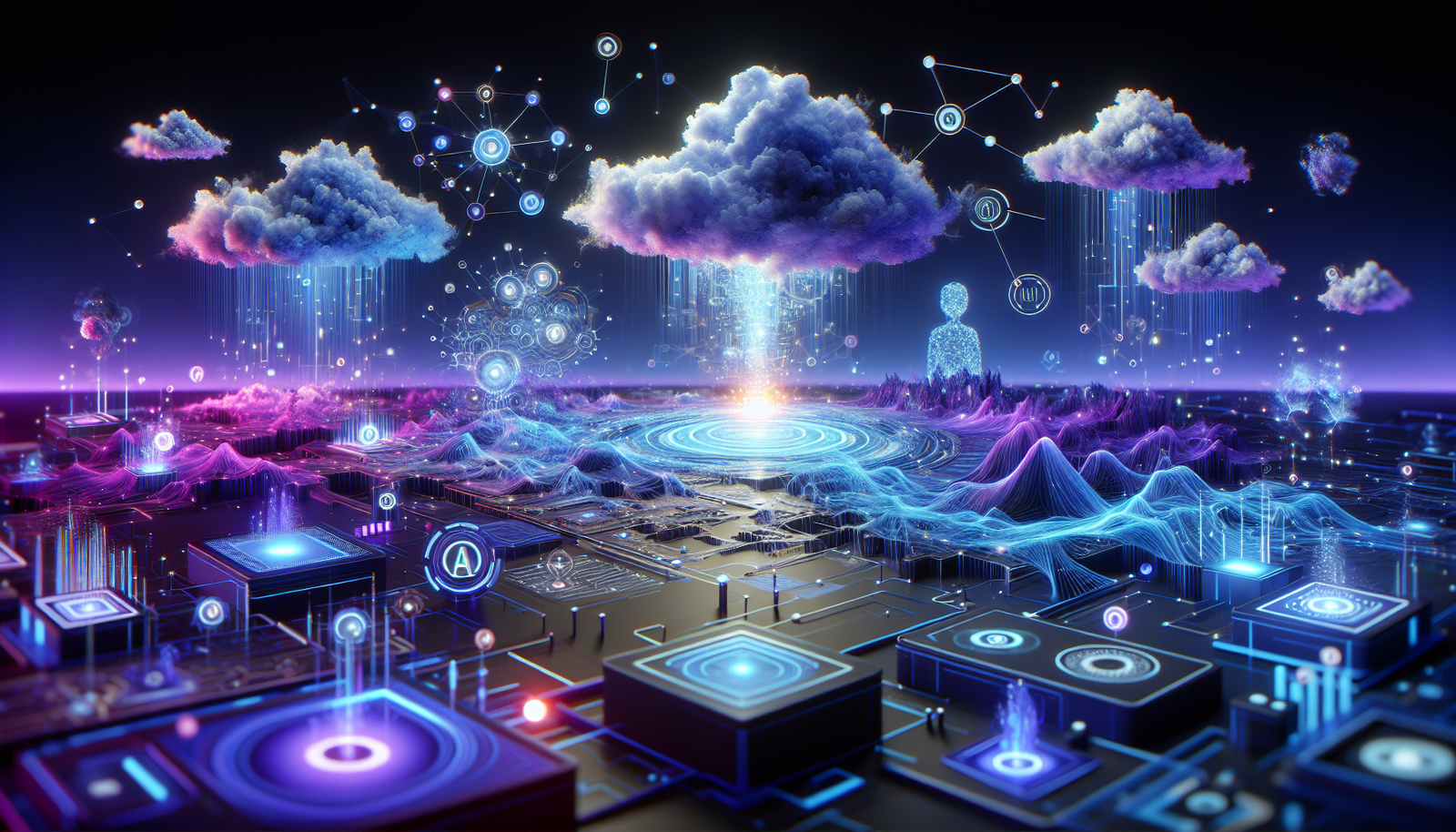Artificial intelligence is redefining the informational landscape at a breathtaking pace, leading to a growing *pollution* of our communication channels. This phenomenon is intensifying as generative tools emerge, causing the proliferation and standardization of content. Confronted with a tidal wave of *redundant messages*, individuals struggle to discern relevant information from unnecessary noise.
It becomes imperative to assess the consequences of this overabundance and to consider mitigating strategies against the anonymity of voices in this informational maze. This unprecedented dynamic imposes a reflection on the *meaning* and *nature* of modern dialogue. In short, artificial intelligence represents a new threshold, an *opportunity*, and a challenge for connected humanity.
The Rise of Artificial Intelligence in Communication
Generative artificial intelligence is developing at a rapid pace, transforming multiple sectors, including communication. Tools like ChatGPT and Midjourney facilitate the automated creation of texts and images, but their proliferation raises important questions. These technologies enable unlimited content production, enriching the digital environment while generating increasing informational pollution. Users must face a world saturated with messages, often indistinguishable from one another.
The Nature of Informational Noise
The concept of noise, introduced by Claude Shannon, has evolved. Initially associated with technical interferences, noise as it manifests today is omnipresent. Every emitted message is likely to be drowned under a deluge of generated content. Two striking facts emerge from this reality: the volume of data is growing exponentially, making traditional information difficult to detect and analyze.
The Standardization of Content
With generative AI, content production is accessible to everyone, regardless of linguistic skills. Simply formulating a query gives rise to texts, images, and videos that are often similar. This homogenization creates a landscape where originality takes a back seat to the multiplication of redundant content. The results resemble an amorphous mass, thus diminishing the generalist aspect of creativity.
The Declining Quality of Information
The proliferation of low-quality content leads to an erosion of informative value. A vast percentage of recently produced data is difficult to interpret because algorithms favor formatting and recycling of the same ideas. This trend contributes to reducing the diversity of opinions and reinforces a monolithic view of the world, thereby destroying any originality. The plurality of voices is stifled in this cacophony.
The Psychological Consequences on Users
In this situation, the user experience becomes complicated. Human brains, already overloaded with information, prioritize what seems familiar. Algorithms, which favor popular content, often overlook relevant and innovative perspectives. This reality feeds a vicious circle where indifference to quality messages intensifies. Soon, dissenting voices may become almost inaudible, pushed to the margins.
A Dehumanized Communication
The mechanics of artificial intelligence, where content feeds other systems, open the door to entirely automated interactions. This possibility drains the traditional link between the sender and the receiver, leading to privatized communications that can be dehumanizing. Thus, technical exchanges swiftly replace authentic dialogues, creating a world where communication becomes pure artifice.
Reinventing Communication Methods
Given this informational pollution, a central challenge arises: finding common meaning. What to say, to whom, and for what reason? These questions lead users toward a necessary reflexivity. It becomes essential to reconnect sincere and meaningful links, to encourage constructive exchanges. By building an attention space, each person can contribute to a calmer communication.
This phenomenon also invites a redefinition of the relationship with language. The sender must learn to reduce the noise, to play with it deftly. The challenge is to create a conducive environment where each word carries weight, stimulating more attentive listening in a world saturated with content.
Frequently Asked Questions about Informational Pollution Related to Artificial Intelligence
How does artificial intelligence contribute to informational pollution?
Artificial intelligence generates a considerable amount of content, often similar and redundant, creating an environment saturated with information. This phenomenon makes communication more complex and less clear, leading to message clutter.
What is “noise” in communication according to Claude Shannon?
According to Claude Shannon, “noise” refers to any disturbance or alteration of the signal between a sender and a receiver. In the current context, this noise becomes structural and omnipresent, accentuated by the proliferation of content generated by AIs.
What are the effects of content standardization by AIs on originality?
The standardization of content leads to message homogenization, making it more difficult for original ideas to emerge. AI-generated content, often based on similar corpora, lacks creativity and diversity.
What is the difference between useful noise and noise generated by artificial intelligence?
Useful noise was once a vector of surprises and insights, like a revealing typo. In contrast, noise generated by AI is generally predictable and industrial, making it less rich in meaning and value.
Why is it crucial to rethink communication in a world saturated with AI?
It is essential to rethink communication to allow for genuine human interaction and sharing of meaning. At a time when noise becomes dominant, the focus should be on the quality of listening and expression, rather than quantity.
How can we reduce noise in AI-generated communications?
To reduce noise, it is important to focus on clear, relevant, and unique messages. This involves carefully selecting the information to share and engaging the audience more meaningfully.
What are the consequences of automating content creation?
Automating content creation can lead to increasingly dehumanized and repetitive exchanges, where human interactivity is replaced by dialogues between machines, thus threatening the depth of communication.
How do algorithms influence our perception of content?
Algorithms favor information that seems familiar, thus reinforcing a bias towards similar content and reducing exposure to new ideas and perspectives, which limits cognitive diversity.
What approach should be taken to navigate the era of information overload caused by AI?
Adopting a critical and selective approach to information consumption is essential. This includes evaluating sources, seeking diverse content, and actively engaging with the ideas presented.






